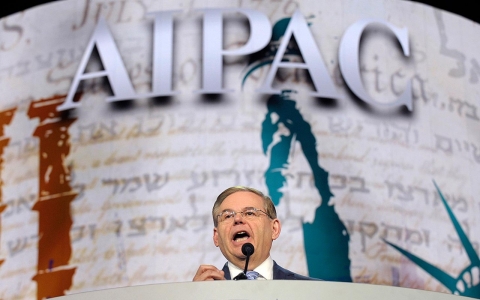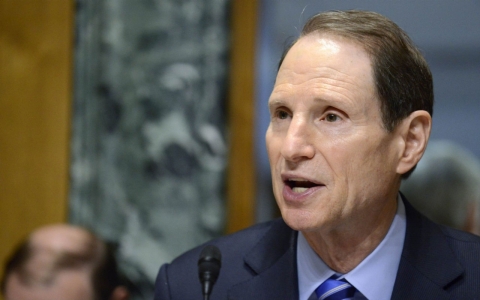American institutions spent $3.21 billion on lobbying in 2014, down from a high of $3.55 billion in 2010, according to information from the Senate Office of Public Records published last week by Open Secrets. As usual, Big Pharma, the military-industrial complex, the NRA and pro-Israel groups were among the big spenders that peddled their influence via nearly 12,000 professional lobbyists.
Analysts point to a variety of reasons why lobbying has declined slightly in recent years. The most common argument is that Congress is less productive, leading companies and organizations to spend fewer resources on trying to affect legislative outcomes. Another argument is that the Honest Leadership and Open Government Act of 2007, which tightened public disclosure requirements, has driven some lobbying activity into loopholes where they skirt the official tally.
“There were some really momentous things going on [in 2009 and 2010], including the health care bill, the stimulus and Dodd-Frank,” said Russ Choma, an expert on political spending at the Center for Responsive Politics. “[Legislative activity] peaked then, and that’s the reason so many people were spending so much money. We’ve seen nothing of that size since.”
He said a flurry of end-of-year legislative activity involving last-minute Wall Street–friendly add-ons to the CRomnibus spending bill didn't contribute significantly to the year’s totals.
For the third year in a row, the single biggest spenders were the U.S. Chamber of Commerce, the National Association of Retailers and Blue Cross/Blue Shield. As a result of intensive lobbying by business groups, Barack Obama’s administration postponed for a second time the Affordable Care Act’s requirement that medium-size employers pick up the tab for their workers’ coverage. The Chamber, along with Koch Industries, was also effective in blocking the SEC rule to require public companies to report political spending.
“There’s definitely a very top echelon of groups that don’t ever really change, said Choma. “But that does tend to ebb and flow, depending what’s on Capitol Hill.”
| Organization | Total |
|---|---|
| U.S. Chamber of Commerce | $124,080,000 |
| National Assn. of Realtors | $55,057,053 |
| Blue Cross/Blue Shield | $21,298,774 |
| American Hospital Assn. | $20,753,146 |
| American Medical Assn. | $19,650,000 |
| National Assn. of Broadcasters | $18,440,000 |
| $17,520,000 | |
| National Cable and Telecommunications Assn. | $17,460,000 |
| Comcast | $16,970,000 |
| Boeing | $16,800,000 |
But in 2014, according to commentators, several top policy victories were not scored by yesteryear's powerhouses. Executive action on immigration, the EPA’s crackdown on coal power plants and another delay for the Affordable Care Act’s employer mandate all took place outside the halls of a deadlocked Congress.
"To me, the notable thing is not that lobbying has declined, as it's almost stayed at the same level," said Lee Drutman, a senior fellow at the New America Foundation. "It's that Congress has gone into gridlock."
But that didn’t stop aggressive lobbying efforts by a host of public interest groups, from boardrooms to grass-roots organizers.
Given legislative inaction on one long-simmering issue, the president’s broad immigration order was a response to a long campaign by advocacy groups such as National Council of La Raza to overhaul a flawed system. Yet such organizations have minuscule budgets compared with the tens of millions spent by lobbying giants.
“When you look at how much business groups spend and how much public interest groups spend, it’s not a fair fight at all,” said Drutman.
Yet one upward trend that continued last year was huge lobbying by the tech industry, largely on liberal causes.
Computer and Internet companies put about $140 million into such efforts last year, a sizable chunk of it in the hopes of expanding visa programs for high-skilled workers. Notably, the president pledged to expand the Optional Practical Training program, which allows foreign students to remain in the U.S. to work.
Google, Facebook and Amazon have all recently heightened their political efforts, Choma said, while they have been drawing increased attention from regulators. Besides pushing for legal changes to attract high-tech labor, these firms have exerted influence on antitrust issues, Internet sales tax concerns and green energy legislation.
“These tech firms shook things up, and now they can’t be ignored,” he said. “A couple years ago, maybe they wouldn’t have [spent as much on lobbying] because they weren’t sophisticated or confident enough. Now they have come to town and hired lots of really good lobbyists.”
While tech companies were active on the energy front, the year’s biggest progressive coup in that arena came with February’s tightened Environmental Protection Agency regulations on carbon emissions. The Natural Resources Defense Council led the green lobby charge against dirty coal, which appears likely to end up with the judiciary branch.
Over the past five years, among corporations, GE has remained the biggest lobbying spender by far, followed by a host of military contractors and telecommunication companies. Defense firms successfully reversed earlier spending cuts in the sequester, which had taken a $63 billion bite out of the Pentagon’s budget. The Aerospace Industries Association and the National Association of Manufacturers are among the top spenders in this category.
Also notable in 2014, the powerful right-leaning pro-Israel lobbying group the American Israel Public Affairs Committee is widely perceived to have failed in mustering support for a Senate bill to increase sanctions on Iran. The group spent about $3 million lobbying last year and constituted the bulk of pro-Israel efforts, with its rival left-leaning J Street spending just $400,000.
| Industry | Total |
|---|---|
| Pharmaceuticals/health products | $227,808,563 |
| Business associations | $162,730,246 |
| Insurance | $148,868,686 |
| Oil and gas | $140,389,740 |
| Computers/Internet | $138,734,928 |
| Electric utilities | $120,929,122 |
| TV/movies/music | $114,191,296 |
| Misc. manufacturing and distributing | $97,690,350 |
| Securities and investment | $97,277,311 |
| Real estate | $94,780,579 |
Two big lobbying wins from the prior year — for gun rights and same-sex marriage — meant a relatively quiet 2014 on Capitol Hill for both of those issues. Spending some $15 million on lobbying in 2013, gun rights advocates prevented passage of the universal background checks bill — one of the biggest defeats for Obama’s legislative agenda. In the aftermath of the Sandy Hook Elementary School massacre, the National Rifle Association and Gun Owners of America argued that cracking down on weapons was the wrong response.
Gay rights groups enjoyed historic victories for same-sex marriage in 2013. In addition to a landmark Supreme Court decision striking down part of the Defense of Marriage Act, the Senate passed the Employment Non-Discrimination Act. Among other groups, Human Rights Campaign and Freedom to Marry Action lobbied hard, spending a combined $2 million.
Since the return on investment for lobbying is often better than the benefit from campaign donations, corporate lawyers strolling the halls of Congress will continue arguing for everything from low tax rates on multinationals to fossil fuel subsidies and high prescription drug costs.
"There’s a lot of value to continuing to show up and build relationships,” Drutman said. “Politics is not a vending machine. You don’t know what will happen, but you need to be in it to win it."

Budget deal shows that even the best lobbyists have their limits

Commentary: Washington’s soft line on Cairo’s military coup is shaped by pro-Israel and defense lobbies, not democracy

Analysis: The lucrative tax breaks take billions out of the budget, at great reward to lobbyists and lawmakers

Multinational companies and their lobbyists are what’s limiting sanctions on Putin and his cronies






Error
Sorry, your comment was not saved due to a technical problem. Please try again later or using a different browser.